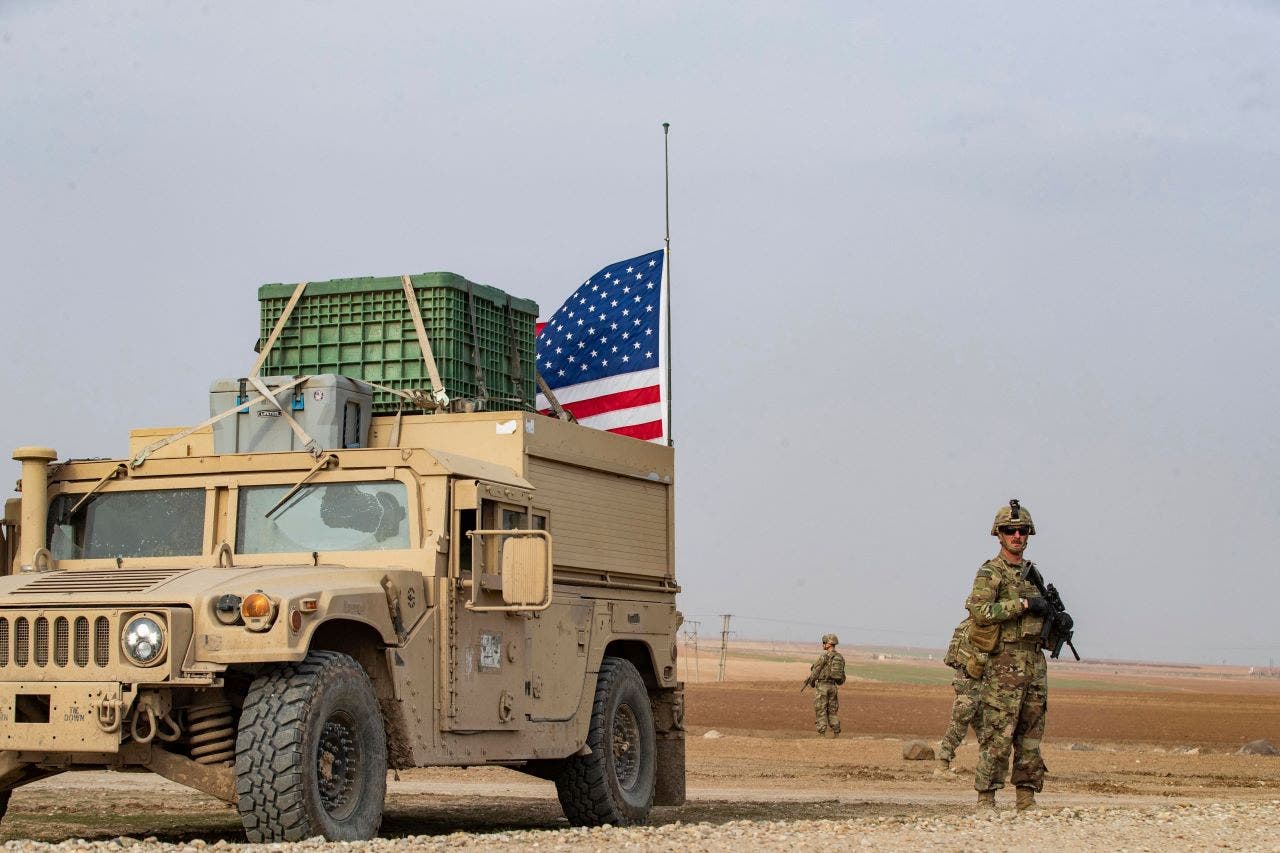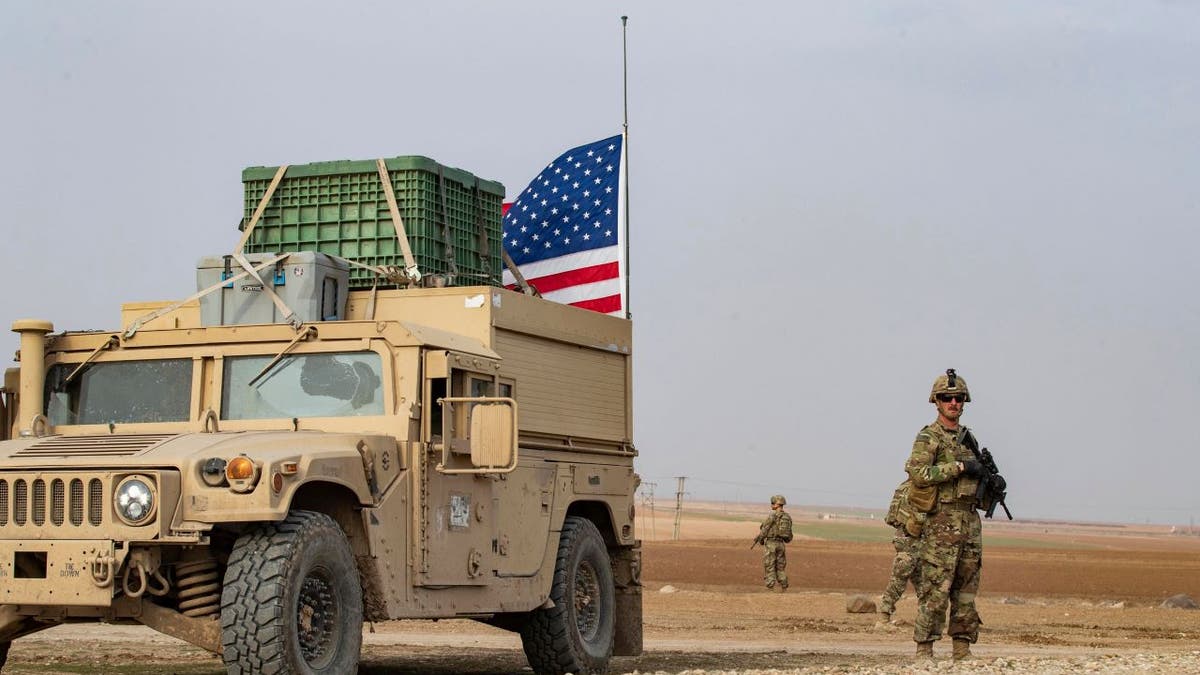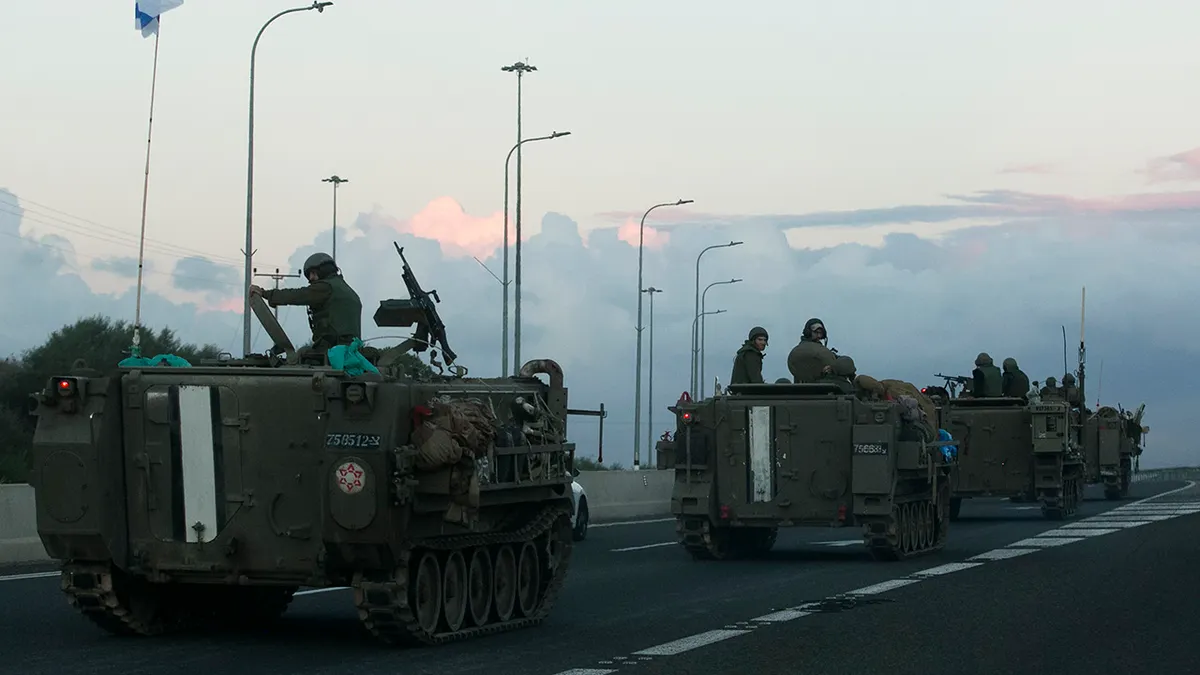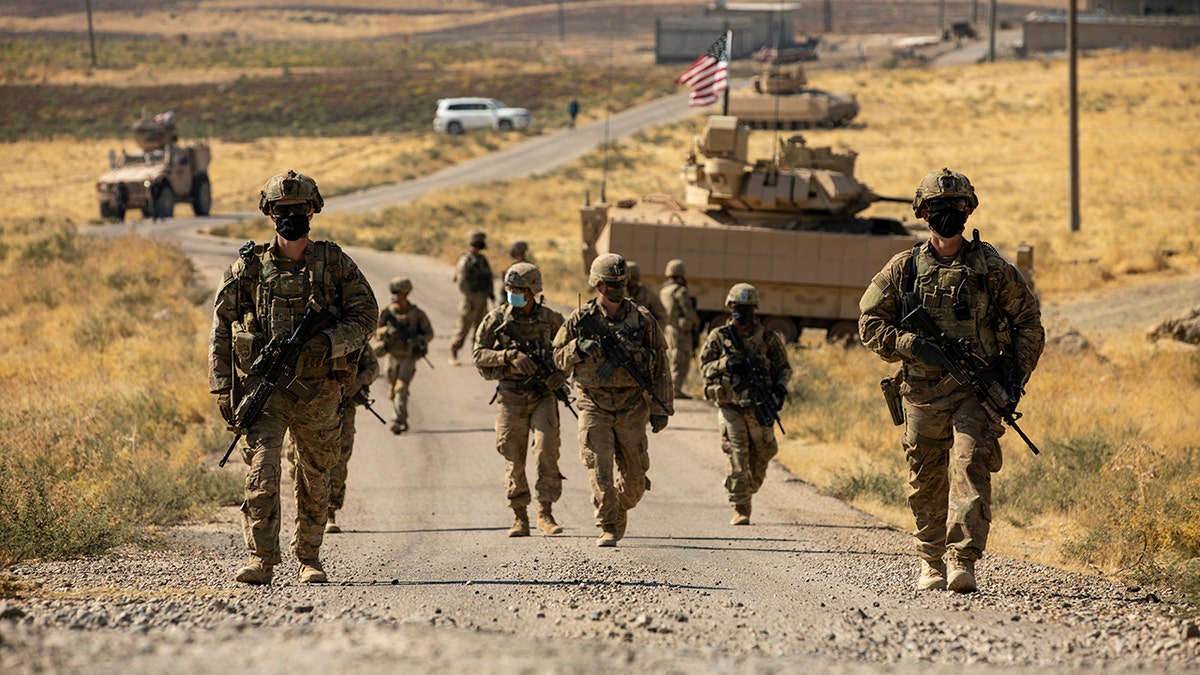
American troops operating in the Middle East have been faced with an uptick in attacks in recent weeks, a trend that could continue as the U.S. supports Israel’s war effort against Hamas.
U.S. forces conducted airstrikes on facilities in eastern Syria last week in response to continued attacks on U.S. troops by Iranian proxies in recent weeks, striking a weapons depot and an ammo storage area believed to be used by Iran’s Islamic Revolutionary Guard Corps and affiliated groups, a senior U.S. defense official told Fox News’ chief national security correspondent Jennifer Griffin.
The strikes come as Pentagon officials have warned of the possible fallout of Israeli’s war with Hamas leading to increased danger for U.S. forces, with one senior defense official telling reporters that they “see a prospect for much more significant escalation against U.S. forces and personnel in the near term and, let’s be clear about it, the road leads back to Iran,” according to a report from Military.com.
The warning came as Israel began its second phase, which saw a number of troops enter Gaza in response to the Hamas terror group’s attack on communities in the country’s south on Oct. 7 that saw some 1,400 Israelis killed and hundreds taken hostage. While U.S. troops are not directly involved in the conflict, forces carrying out counter-terrorism operations in Iraq and Syria have been put at increased risk, particularly from attacks by Iranian-backed proxies looking to influence U.S. support for Israel.
US TROOPS IN MIDDLE EAST ATTACKED 14 TIMES, INJURING 24 PEOPLE OVER THE LAST WEEK: PENTAGON

American troops operating in the Middle East have been faced with an uptick in attacks in recent weeks, a trend that could continue as the U.S. supports Israel’s war effort against Hamas. (Delil Souleiman / AFP via Getty Images / File)
Robert Greenway, the director of the Center for National Defense at the Heritage Foundation, told Fox News Digital that a “good chunk of those [were] towards Al-Asad Airbase [in Iraq], our largest in the area and a critical part of our operations.”
The Pentagon’s acknowledgment of the issue has taken a sudden turn over the last few weeks, according to the Military.com report. Earlier this month, the report notes, Pentagon top spokesperson Brig. Gen. Pat Ryder said he was “not tracking any specific information regarding the specific targeting of American citizens or U.S. military forces or their families.” But last week, Ryder told reporters during a Pentagon press briefing that there have been a growing number of attacks and that “by virtue of the fact that they’re supported by Iran, we will ultimately hold Iran responsible.”

Israeli armored personnel carriers move near the border with Lebanon on Oct. 15, 2023, in Amiad, Israel. (Amir Levy / Getty Images)
HAMAS TERROR BASE IS HIDDEN BENEATH GAZA’S LARGEST HOSPITAL, ISRAEL ALLEGES
Other senior defense officials also acknowledged the uptick in attacks in comments to Military.com, but just what the response will be is even more important, Greenway said.
“We should be responding in kind to prevent this from continuing, otherwise one of these times they’re going to get lucky and they’re going to cause a casualty and fatality or perhaps multiple ones,” he said.
Bill Roggio, managing editor of the Long War Journal at the Foundation for Defense of Democracies, told Fox News Digital that the situation poses the risk of escalating further.
“The risk of this escalating is significant, it certainly needs to be on the radar of the Department of Defense,” Roggio said. “They have tens of thousands of fighters per group in their ranks, and if they wanted to muster forces and attempt to overrun a base, they may very well be able to do so.”
US MILITARY CARRIES OUT AIRSTRIKES ON FACILITIES IN SYRIA OPERATED BY IRANIAN-BACKED FORCES
Roggio said that many U.S. bases in Syria are lightly guarded, and while it’s difficult to confirm an exact number of troops, the number of U.S. forces is thought to be around a couple of hundred. Meanwhile, bases in Iraq are largely guarded by Iraqi forces, which Roggio says have proven to be “unreliable.”
He also argued that the U.S. countering with strikes on targets such as ammo depots likely wouldn’t be enough to deter future attacks. Instead, Roggio said, the U.S. would likely have to surge possibly a couple of thousand more troops into the area to protect the under-guarded installations.
Greenway noted that the continued attacks will begin to have an impact on U.S. forces’ counterterrorism operations in the region, arguing that it will be difficult for troops to conduct “offensive operations” while also having to defend themselves from attacks.

Roggio said that many U.S. bases in Syria are lightly guarded, and while it’s difficult to confirm an exact number of troops, the number of U.S. forces is thought to be around a couple of hundred. (U.S. Army photo / Spc. Jensen Guillory)
The Pentagon announced that it is moving more air defense platforms as well as the USS Dwight D. Eisenhower aircraft carrier strike group to the region in response to the attacks, a move that Ryder says “enhances our presence and … provides another level of capability across the broader Middle East region.” Meanwhile, more U.S. troops have surged into the region and an additional 2,000-plus troops have been put on a “prepare to deploy” order, something that defense officials said will be “critical to bolstering regional deterrence efforts, safeguarding our troops and assisting in the defense of Israel.”
CLICK HERE TO GET THE FOX NEWS APP
Roggio said Iran has multiple goals in the region and its proxies could even be moved to Israel’s borders with Lebanon and Syria and present additional problems for Israeli forces as they continue their offensive in Gaza. Iranian proxies could also continue attacks on U.S. forces in the area in an attempt to undermine U.S. resolve and support of Israel in the ongoing conflict.
Greenway said such attacks are likely to continue, also arguing that Iranian-backed proxies will continue to hit U.S. troops in an attempt to soften resolve for American support of Israel.
“The intent behind these attacks is to create pressure on the United States,” Greenway said, adding that such pressure is aimed at causing the U.S. to then apply pressure to Israel to end hostilities. “This is how Iran works, through surrogates and proxies against the United States.”







